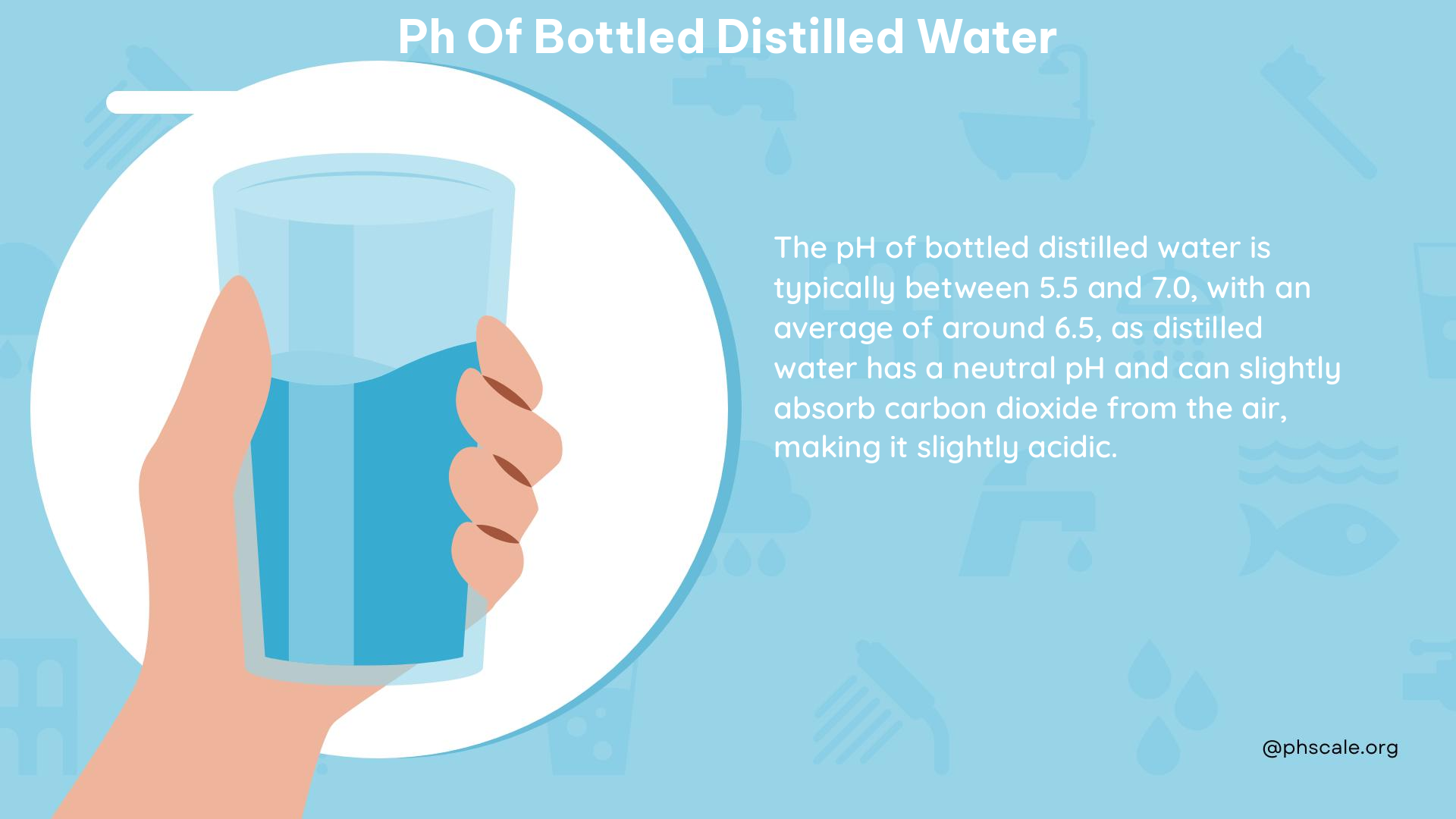The pH of bottled distilled water is typically slightly acidic, ranging from 5.4 to 5.8. This is due to the water’s interaction with carbon dioxide in the atmosphere, which leads to the formation of carbonic acid and a decrease in pH. Understanding the pH of bottled distilled water is crucial, as it can impact its suitability for various applications and the overall health benefits of consuming it.
Acidity of Bottled Distilled Water
Distilled water is produced through a process of boiling and condensation, which removes impurities and contaminants. However, this process also removes beneficial minerals, leaving the water in a pure state. As a result, distilled water is highly susceptible to absorbing carbon dioxide from the atmosphere, which then reacts with the water to form carbonic acid.
The formation of carbonic acid is the primary reason why bottled distilled water has a slightly acidic pH. Immediately after the distillation process, the water has a neutral pH of 7, but as it interacts with the atmosphere, the pH quickly drops to the range of 5.4 to 5.8.
Comparison to Other Water Types

Compared to other types of water, bottled distilled water has a lower pH than both bottled mineral water (pH 7.1-7.5) and tap water (pH 7.5). This difference in pH can be attributed to the lack of minerals in distilled water, which would otherwise help to buffer the water and maintain a more neutral pH.
Contaminants and Chemicals
The primary contaminant that affects the pH of bottled distilled water is carbon dioxide. As the water absorbs this gas from the atmosphere, it reacts to form carbonic acid, lowering the pH. While distillation removes other impurities, the water can still interact with atmospheric gases, leading to changes in its pH.
Balancing the pH
To maintain a healthy pH balance, it is recommended to run bottled distilled water through an alkaline water pitcher or filter. These devices can help to raise the pH of the water, bringing it closer to a neutral or slightly alkaline state. Additionally, the lack of beneficial minerals in distilled water can be addressed by adding a mineral supplement or consuming it alongside a balanced diet.
History of Distillation
The process of distillation has been used for centuries to purify water and remove impurities. The basic principle involves boiling water and then condensing the resulting vapor, leaving behind any contaminants. This process has been refined over time, leading to the production of high-quality distilled water that is widely used in various applications, from medical and scientific purposes to household use.
Helpful pH Quantity to Consume
While the slightly acidic pH of bottled distilled water is not necessarily harmful, it is generally recommended to consume water with a pH closer to neutral or slightly alkaline, around 8.5. Drinking alkaline water can be particularly beneficial for individuals with conditions such as irritable bowel syndrome (IBS), heartburn, and acid reflux, as it can help to neutralize excess stomach acid and promote better digestive health.
In conclusion, the pH of bottled distilled water is an important factor to consider when choosing a water source. Understanding the reasons behind its slightly acidic nature and the steps that can be taken to balance the pH can help ensure that you are consuming water that is optimally suited for your health and well-being.
